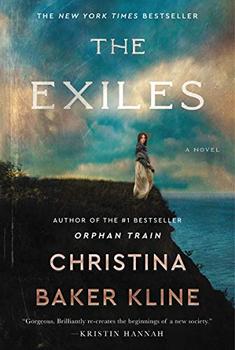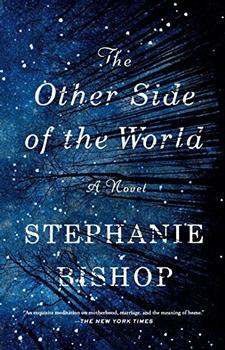Summary | Excerpt | Reading Guide | Reviews | Beyond the book | Read-Alikes | Genres & Themes | Author Bio

Loosely based on the notebooks of astronomer William Dawes, The
Lieutenant split our readers into two distinct groups. About two-thirds of
those who reviewed it loved it, but a few of the remainder were considerably less enthusiastic:
Fans say...
In this beautifully written and delightful novel, Grenville seamlessly
weaves historical fact together with a multitude of philosophical questions in
order to create a vivid and compelling story (Eileen P). The book explores the huge themes of friendship, the conflict between cultures, and courage. As one man discovers himself he finds that he has it within him to follow his conscience no matter what the cost. All intertwined with the magic of language, mathematics, and astronomy (Maryanne K).
If you are interested in the Aboriginals and how the first penal colony was
settled in New South Wales in the 1780's, The Lieutenant is the book
worth reading. Although it is fiction loosely based on a real person, the rich
details of daily life, conflicts, and diversity of language drives the story
leaving its readers to want more (Marion C).
The historical background adds a new
dimension to a story you may think you know. Questions of culture and morality
left me thinking about this book long after I finished it. Book clubs will enjoy
this as will readers who liked
The Forgotten Garden or
Olive Kitteridge (Susan B). Of particular interest to me was the way in which the author portrayed the young lieutenant's burgeoning preoccupation with the intricacies of the aboriginal
language and culture. I very much liked Grenville's use of language and am
looking forward to reading an earlier book of hers, The Secret River
next (Susan K).
Kate Grenville has a new fan! Her simple and straightforward style
belies a depth and complexity of both story and characters. This is not only a
novel of science and exploration, but also of discovery - discovery of place and
peoples and language, discovery of self and purpose. (Madeline M-S). This was a
hard book to finish because I found myself lost in thought and not reading. A
beautiful book (Sally G).
But some feel that...
The story is lacking in purpose, there seems to be no theme nor any successful
conclusion (Margo A). I think this is a good book, well worth reading, but
feel the author missed the opportunity to develop it into a great book with a
more powerful story (Jean T); not enough time is spent on any of the elements of
the story. I was left wishing for a deeper examination of the characters and
events (Katherine Y).
The bottom line
The Lieutenant revisits the same period Grenville wrote about in
The
Secret River (2005), the first years of the Port Jackson penal colony, but this is a more compact, leaner work. Although based on the diaries of William Dawes this is not your
typical historical fiction - Grenville is as much, if not more, focused on
observing the mind of her protagonist than she is in exploring the vista he
beholds. As we inhabit his mind, his moral dilemmas become ours, and we
share his isolation. Written with a poet's sensibility, this is an
adventure into the nature of language and culture and of how people can connect
across seemingly impenetrable barriers.
Read all the reviews

Interesting Link
Kate Grenville talking about The Lieutenant.
Incidentally, this being an Australian book, the title should arguably be pronounced "leftenant" (British and Australian English), not "lewtenant" which is American English!
![]() This review was originally published in The BookBrowse Review in October 2009, and has been updated for the
October 2010 edition.
Click here to go to this issue.
This review was originally published in The BookBrowse Review in October 2009, and has been updated for the
October 2010 edition.
Click here to go to this issue.

If you liked The Lieutenant, try these:

by Christina Baker Kline
Published 2021
The author of the #1 New York Times bestseller Orphan Train returns with an ambitious, emotionally resonant historical novel that captures the hardship, oppression, opportunity and hope of a trio of women's lives - two English convicts and an orphaned Aboriginal girl - in nineteenth-century Australia.

by Stephanie Bishop
Published 2017
In the tradition of The Hours and Revolutionary Road comes a novel set in the 1960s about marriage, motherhood, identity, nostalgia, and the fantasy of home.
Some books are to be tasted, others to be swallowed, and some to be chewed on and digested.
Click Here to find out who said this, as well as discovering other famous literary quotes!
Your guide toexceptional books
BookBrowse seeks out and recommends the best in contemporary fiction and nonfiction—books that not only engage and entertain but also deepen our understanding of ourselves and the world around us.